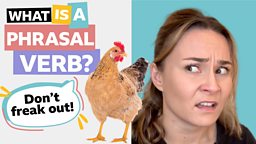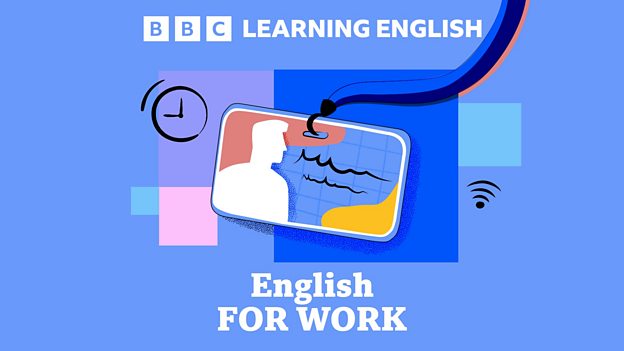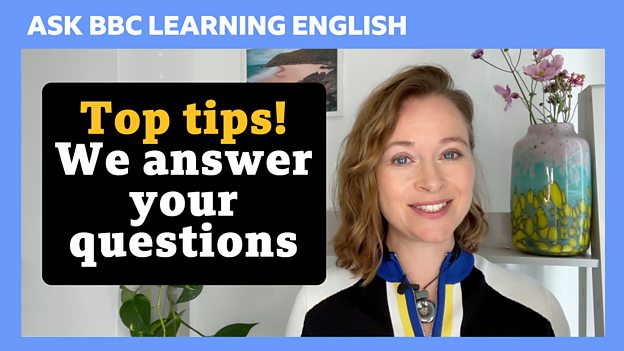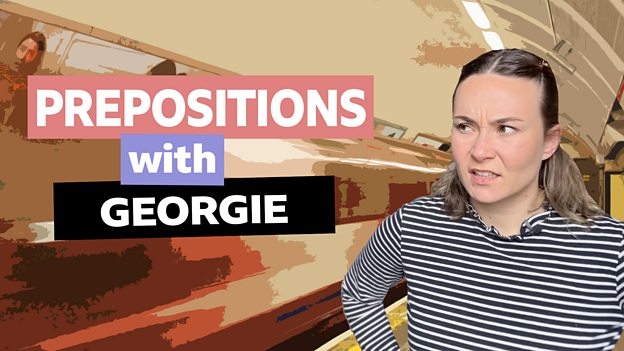Phrasal verbs with Georgie
Intermediate level
Phrasal verbs for eating
Episode 241004 / 04 Oct 2024

Free worksheet
_______________________________________________________________________________
Watch all episodes
____________________________________________________________________________
Learn more about food
____________________________________________________________________________
Introduction
Georgie teaches you some phrasal verbs that can be used to talk about eating.
Phrasal verbs mentioned
snack on (something)
eat small amounts of something casually, between meals
- She likes to snack on almonds while she works.
- The kids were snacking on biscuits while watching the film.
munch on (something)
eat something casually, usually in a way that makes a crunching sound
- He's munching on his apple.
- They munched on popcorn at the cinema.
dig in or tuck in (to something)
start eating excitedly or enthusiastically. Often used to give people permission to start eating
- The food looks delicious — let’s dig in!
- The children tucked into their pancakes with delight.
eat up or eat (something) up
finish all the food on your plate. Often used as an imperative
- Eat up! You've got a big day tomorrow — you'll need the energy!
- You’d better eat up all your vegetables before you leave the table!
pig out
eat a lot of food in a greedy way, often more than you need
- After the long hike, she pigged out on sugary doughnuts.
- We usually pig out on snacks when we have movie nights.
eat out
eat somewhere outside of the home, like a restaurant or cafe
- I love eating out, but it can be expensive if you do it all the time.
- We've got no food in the house, so why don't we eat out this evening?
TOP TIPS!
- If you see the word ‘something’, it usually means the verb requires an object.
- If ‘something’ is in the middle of the phrasal verb, it means that it can be separated by the object (but doesn’t have to be).
- If ‘something’ is at the end of the phrasal verb, it means it cannot be separated.
- When a pronoun, e.g. him, her, them, is the object of a separable phrasal verb, it must go between the verb and the particle.
To do
Practise by using the worksheet on this page.
NEXT
Try our other vocabulary programmes
Latest Phrasal verbs with Georgie

Phrasal verbs for climate change
Episode 241107 / 07 Nov 2024
Learn some phrasal verbs related to climate change
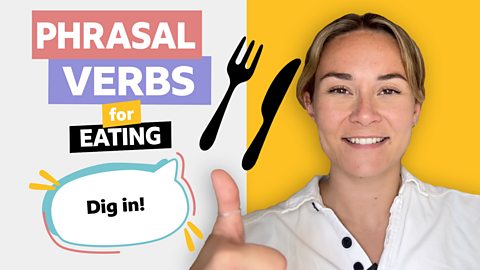

Phrasal verbs for work
Episode 240927 / 27 Sep 2024
It's time to put in some effort to learn these phrasal verbs

Phrasal verbs for sleep
Episode 240920 / 20 Sep 2024
Don't doze off... it's time to learn some phrasal verbs!


Phrasal verbs for travel
Episode 240719 / 19 Jul 2024
Georgie's looking forward to teaching you these phrasal verbs for travel...
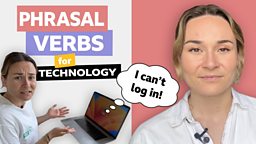
Phrasal verbs for technology
Episode 240712 / 12 Jul 2024
Scroll through this page all about phrasal verbs for technology

Phrasal verbs for health and fitness
Episode 240705 / 05 Jul 2024
Don't give up your dreams of learning English!

Phrasal verbs for money
Episode 240628 / 28 Jun 2024
Learn these common and useful phrasal verbs about money

Phrasal verbs for education
Episode 240322 / 22 Mar 2024
If you're into phrasal verbs, you're in the right place!

Phrasal verbs for friendship
Episode 240315 / 15 Mar 2024
Learn some phrasal verbs to talk about friendships and relationships between people in general
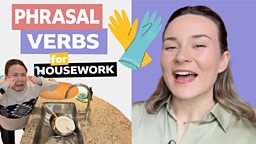
Phrasal verbs for housework
Episode 240308 / 08 Mar 2024
Learn some phrasal verbs related to doing chores around the house

Phrasal verbs for your morning routine
Episode 240301 / 01 Mar 2024
Do you like sleeping in or are you more of an early riser?
